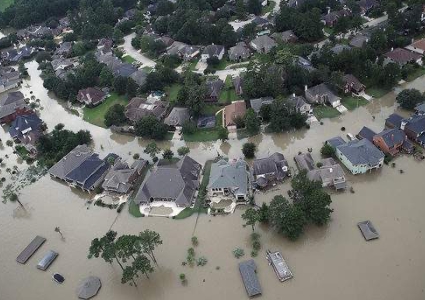Polling

Disaster aid

Major natural disasters can often be as terrifying as a terrorist attack. There have always been hurricanes, earthquakes, tornados, volcanoes, floods, wildfires and droughts, but it seems the frequency and intensity of these events are increasing. Since 1980, there have been 403 U.S. weather and climate disasters with costs exceeding $1 billion, totaling over $2.915 trillion. These events include a breakdown of 203 severe storms, 67 tropical cyclones, 45 floods, 32 droughts, 24 winter storms, 23 wildfires, and 9 freezes. This includes Hurricane Katrina which claimed the lives of 1,833 New Orleans residents in 2005; the devastating 2011 Hackleburg, Tuscaloosa and Joplin tornadoes all occurred within 5 weeks of each other. These EF4, 200 mph twisters, took the lives 233 Americans and caused more than $6 billion in damage; the EF4 tornado that hit Oklahoma City, Moore and Newcastle in 2013 flattened an elementary school and killed 90 people including 20 children. This devastating tornado was nearly a mile wide and was in contact with the ground for at least 40 minutes; and Hurricane Sandy, that devastated New Jersey’s shoreline in 2012 and took the lives of 286 Americans.
Scientists predict climate change will increase both the frequency and intensity of these events, and soaring property insurance premiums seem to confirm this prediction. Advocates claim federally-funded, state-administered disaster relief grant programs take too long and waste too much money paying contractors and administrators. They say that when disaster strikes, the federal response needs to match the urgency that victims feel after having their lives turned upside down.
Pending Legislation: H.R.316 - Natural Disaster Recovery Program Act of 2025
Sponsor: Rep. David Rouzer (NC)
Status: House Subcommittee on Economic Development, Public Buildings, and Emergency Management
Chair: Rep. Scott Perry (PA)
Scientists predict climate change will increase both the frequency and intensity of these events, and soaring property insurance premiums seem to confirm this prediction. Advocates claim federally-funded, state-administered disaster relief grant programs take too long and waste too much money paying contractors and administrators. They say that when disaster strikes, the federal response needs to match the urgency that victims feel after having their lives turned upside down.
Pending Legislation: H.R.316 - Natural Disaster Recovery Program Act of 2025
Sponsor: Rep. David Rouzer (NC)
Status: House Subcommittee on Economic Development, Public Buildings, and Emergency Management
Chair: Rep. Scott Perry (PA)
Suggestion
Poll Opening Date
November 3, 2025
Poll Closing Date
November 9, 2025
